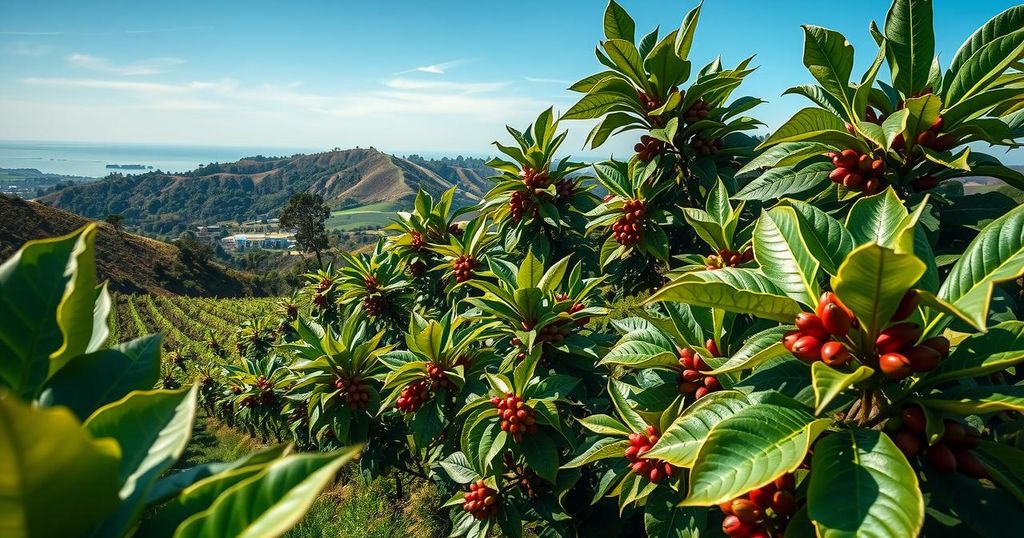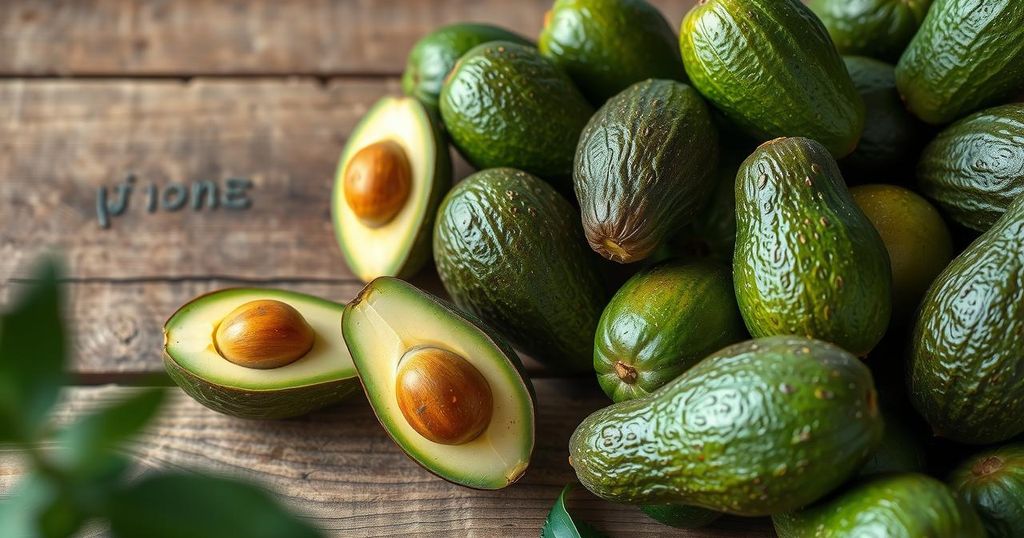Insufficient rainfall in Brazil has led to an increase in coffee prices, with arabica gaining 1.89% and robusta up 1.06%. Projections show a slight increase in global coffee production for 2024/25, but Brazil’s predictions indicate a decline in production and stocks due to drought. Volcafe has significantly reduced its 2025/26 production estimates in light of these conditions, anticipating further supply challenges ahead.
Recent dry conditions in Brazil have contributed to an increase in coffee prices. On Wednesday, May arabica coffee (KCK25) rose by 1.89%, closing at +7.25, while May ICE robusta coffee (RMK25) increased by 1.06%, closing at +58. The strength of the Brazilian real also supported these price gains as limited rainfall was reported in key coffee-growing regions.
Somar Meteorologia stated that the Minas Gerais region, Brazil’s largest arabica coffee producer, received only 30.8 mm of rain during the week leading up to March 15, which is merely 71% of the historical average for that period. Meanwhile, global coffee production for 2024/25 is estimated to rise by 4.0% year-on-year, reaching 174.855 million bags, with arabica and robusta productions expected to increase by 1.5% and 7.5%, respectively.
The USDA’s Foreign Agricultural Service (FAS) forecasts that coffee ending stocks for 2024/25 will drop by 6.6%, reaching a 25-year low of 20.867 million bags, down from 22.347 million bags the previous year. Moreover, Brazil’s coffee production estimate for 2024/25 has been revised downward to 66.4 million metric tons from 69.9 million metric tons, signaling continued challenges for the industry.
In a more recent update, Volcafe has reduced its 2025/26 production estimate for Brazil’s arabica coffee to 34.4 million bags, a significant drop of 11 million bags from its previous September estimate. This adjustment reflects the impact of prolonged drought conditions in Brazil, leading to predictions of an arabica coffee deficit of 8.5 million bags for the 2025/26 season, and marking the fifth consecutive year of projected deficits.
In summary, insufficient rainfall in Brazil has significantly impacted coffee prices, contributing to notable increases in both arabica and robusta coffee futures. Projections for global coffee production show modest growth, yet Brazil’s forecasts suggest a concerning decline in coffee stocks and production estimates due to persistent drought. These factors are poised to create tighter coffee supplies in the upcoming years, reinforcing the ongoing challenges faced by the coffee industry.
Original Source: www.tradingview.com




